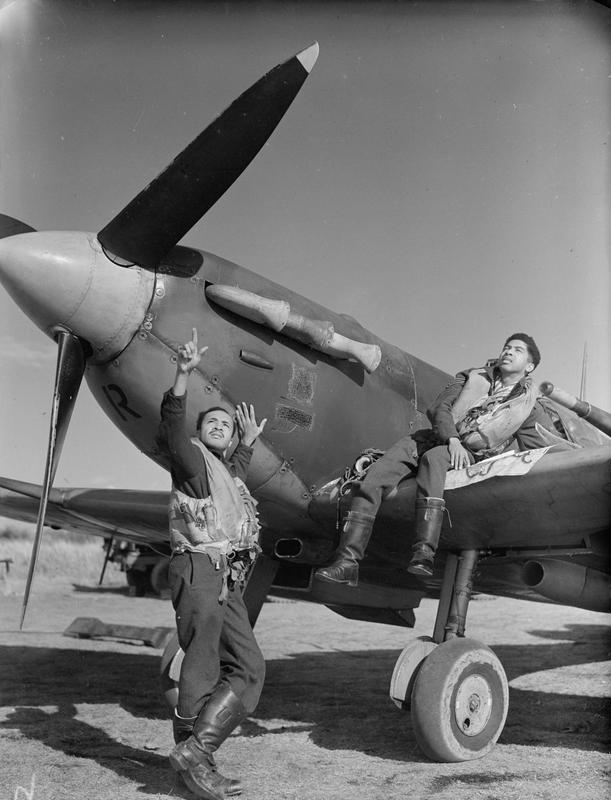Black History Month remembers and celebrates people from the past, and those who contribute to our society today. For the UK Armed Forces, this is an opportunity to celebrate the contribution of black personnel past and present in keeping the nation safe. As part of this celebration, the Ministry of Defence has compiled imagery from WWI and WWII, and profiles of key figures from past and present personnel. In April 2015, the UK Armed Forces had 6,450 black personnel in a range of jobs from combat roles, like solders, sailors and pilots, to non-combat roles including medics, mechanics and engineers. http://defencehq.tumblr.com
During World Wars I and II, black recruits could be found in all branches of the Armed Forces; from black Britons who lived in the UK to West Indians and Caribbeans who travelled to the UK to support the fight for freedom. Estimates vary, but approximately 16,000 men from the Caribbean volunteered to fight for Britain in World War I, and thousands more in World War II. In the RAF in World War II, there were over 17,500 male and female volunteers from the West Indies alone.

World War 1 veteran Sam King, 89, originally from Jamaica came over to volunteer for the Royal Air Force (RAF) and now lives in Brixton, London said:
England said it needed men and I took the test for the RAF and passed. My mother said son, the Mother Country is at war, go and if you live, this will have been a good thing. I repaired aircraft, an aircraft engineer. I don’t like Lancaster bombers because they’re too big. Spitfires are ok, but what I loved was the Dakotas. More than 15,000 of us volunteered. They wanted me to be a rear gunner. But my mother said no as the average life was six months. I’m glad I could help. I did my bit for King and country.
African soldiers fighting for the British Armed Forces were also heavily involved in the World Wars I and II. Soon after the declaration of World War I, soldiers from Nigeria, the Gold Coast, Sierra Leone, Gambia, Uganda, Nyasaland, Rhodesia and Kenya were mobilized to defend the borders of their own lands that adjoined German territories, and they later took the lead in the campaign to remove the Germans from Africa.
When Italy entered World War II by attacking theBritish African territories, two Divisions of African infantry were mobilised, which ultimately led to the surrender of Italian troops in 1941. A similar story contribution was seen in the Burma campaign, where over 90,000 soldiers from East, West and Central Africa played a crucial role in defeating the Japanese.
The end of Empire and subsequent withdrawal from Hong Kong saw an end to this service, and the increasing use of direct recruitment into the British Armed Forces of people from the ethnic minority communities living in the UK.
Speaking about Black History Month, Minister for the Armed Forces, Penny Mordaunt, said:
It’s vital that we keep the memory alive of all those who have fought to protect the freedoms we now enjoy in the UK, including the enormous contribution of those from West Indian, Caribbean and African communities who came to our aid when we needed it most. The Ministry of Defence sees Black History Month as a time to celebrate the achievements of past personnel, and those currently serving in Armed Forces’ operations, from conflicts to humanitarian efforts.
Follow us on Twitter and don’t forget to sign up for email alerts.
